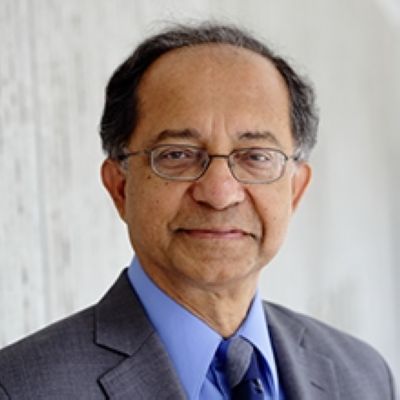NEW YORK — When the sitar maestro Ravi Shankar and Nobel laureate economist Amartya Sen received the Bharat Ratna, India’s highest civilian award, a journalist is said to have asked them, “Between the two of you, who is the more talented?” Comparing musical and economic talent is in many ways meaningless. But Shankar offered an interesting response: “Teach me economics for a week and ask me to give a lecture; I will manage it without making a fool of myself. Now, teach my friend Amartya to play the sitar for a week and ask him to give a public performance….”
The story is probably apocryphal. Nonetheless, it highlights a distinctive feature of economics. In many academic disciplines, it is difficult for someone who lacks a reasonable command of the subject to give a lecture without embarrassment, even to a lay audience. Not so with economics. Generally speaking, the average layperson cannot easily tell the difference between good and bad economics, owing not least to the discipline’s broad range of content and disparate methodologies.
Economics has the virtue of accommodating those immersed in abstruse mathematics and axiomatic methods (Léon Walras, John Nash, and Kenneth Arrow) alongside those who delve into the world’s problems without recourse to symbols (Adam Smith, Thomas Schelling, and Gunnar Myrdal). But such a vast canvas tends to leave room for erroneous brushstrokes. And in deeply uncertain times like the present, when the world is being convulsed by the COVID-19 pandemic, climate change, and the digital revolution, it is easy to understand why many lay readers would grow exasperated with pronouncements from “economists”. How can the non-expert separate the wheat from the chaff?
This sense of disquiet should prompt introspection within the discipline. Even if the criticism is unjustified, a little self-examination cannot hurt. Indeed, I would argue that many mainstream economists fail to appreciate that apprehending reality and crafting sound policy cannot be purely a matter of data and empiricism. However carefully we collect, organise and analyse our data, the insights we gain must be used in conjunction with common sense and intuition.
By the same token, someone who views his own forecasts as expressions of pure science is as dangerous as someone who is guided by superstition. There is no way to predict with certainty what will happen tomorrow. When speaking about the future, we have no other choice but to use our intuition to decide when we can extrapolate from past data and when we cannot. We hope that we as a species have evolved an intuition that is at least somewhat reliable.
An additional problem is that the necessary mix of hard science and intuition or judgement tends to differ across economic specialties. In some branches, such as auction design, economics is close to engineering, whereas in the areas of monetary and fiscal policy, it is heavily reliant on perception and judgement. When outsiders extrapolate from one branch’s performance to make inferences about another branch, errors can quickly pile up.
Beyond these philosophical matters, economic theory also demands a fresh look. To be sure, the rise of data-based scholarship (through big data or randomised control trials) is hugely important. We need data to help spot hidden patterns if for no other reason than to bolster our intuition. Still, the growing propensity to treat these findings as universally dispositive is worrying.
Economics would not be the valuable and exciting discipline that it is today were it not for big theoretical insights like Smith’s seminal insight that order can emerge organically without the need for direction from prime ministers or the state (Leviathan). “It is not from the benevolence of the butcher, the brewer or the baker, that we expect our dinner, but from their regard to their own interest,” Smith famously observed.
But a caveat is in order here. While Smith’s seminal observation was that the “invisible hand” can deliver order, the neoliberal view that the invisible hand always does so is a travesty. One does not have to read more theory to understand this; Franz Kafka’s “The Trial” offers chilling depictions of how evil can be perpetrated without a perpetrator.
Another reason to return to theory now is that the ground is shifting beneath our feet. Mainstream economics has always relied on both explicit and implicit assumptions. For example, textbooks tell us that the efficiency of trade and exchange depends on individual preferences satisfying diminishing marginal utility, technology being convex and so on. But they do not bother to mention that people also need to be able to communicate. That condition is taken for granted, as are many behavioural norms that are crucial for a market’s proper functioning.
But as technology advances and the environment changes, some implicit norms and assumptions will evolve, sometimes with devastating effects on the economy. In our world of social media and public pronouncements, the meaning of what we say is beginning to change. With globalisation, we also have people with different norms operating in the same economy and market. Our theory is ill-equipped to analyse, let alone regulate, such markets. To understand these developments, we need the kind of major theoretical breakthroughs that brought the discipline to where it is today. I am not equating theory with mathematics. Neither Schelling’s prose nor Nobel laureate Elinor Ostrom’s research had much mathematics, but that didn’t stop them from grappling with some of the world’s most fundamental problems.
The risk economists face now is that the ground is shifting faster than our understanding. We must call on economics’ scientific imagination to rise to the challenge and examine not just the state of the world but the state of the discipline.
Kaushik Basu, a former chief economist of the World Bank and chief economic adviser to the government of India, is professor of Economics at Cornell University and a non-resident senior fellow at the Brookings Institution. Copyright: Project Syndicate, 2021. www.project-syndicate.org
